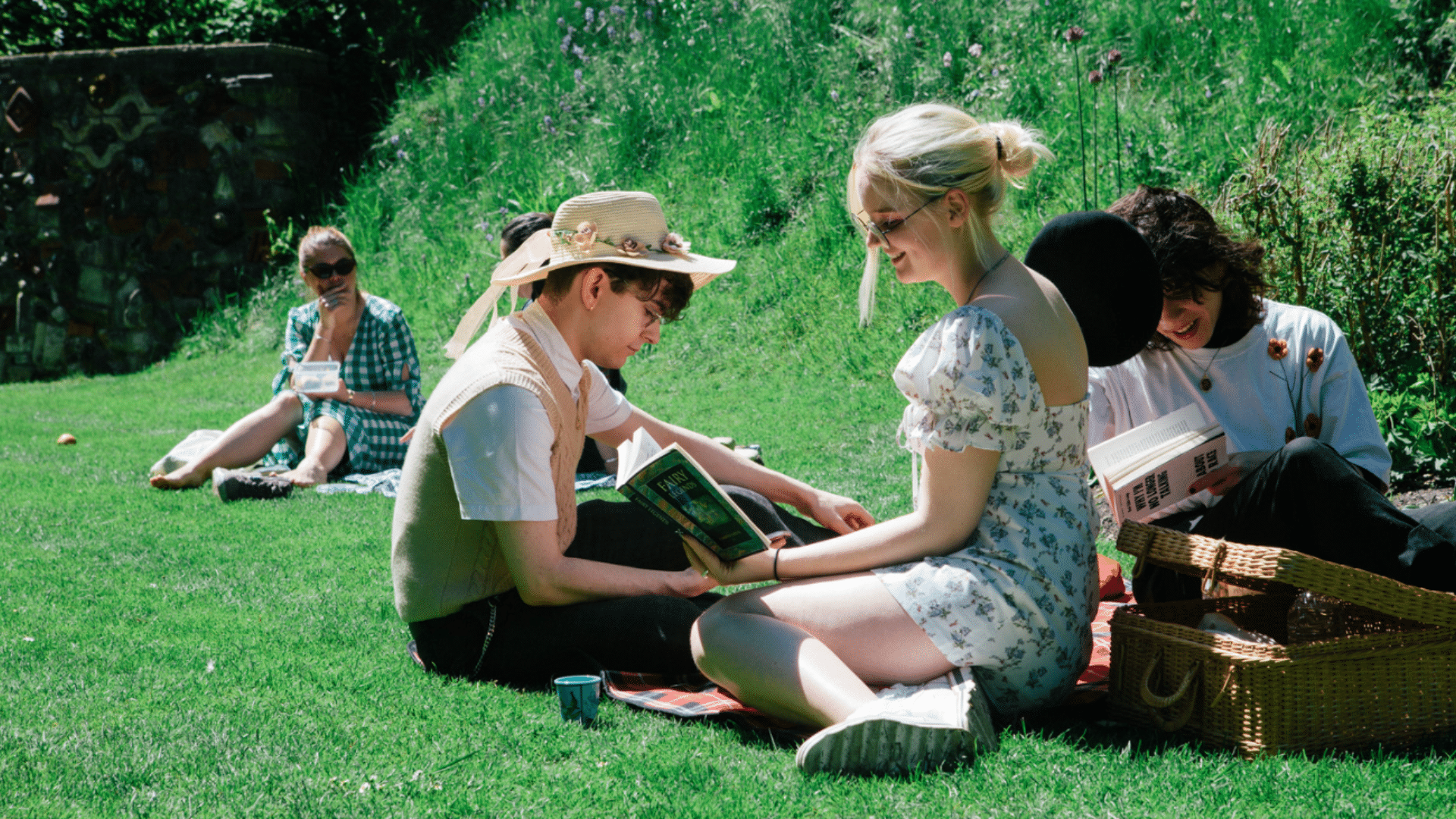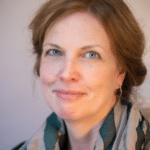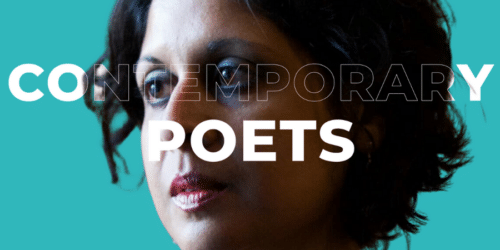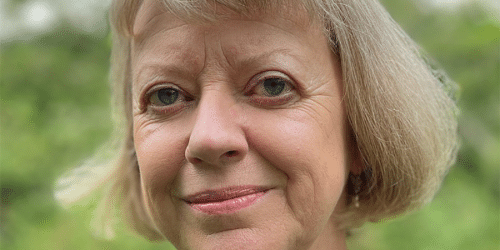
What are you reading?
Writers usually ask each other this question when they meet, because every writer is a reader first, (they’re also curious about the way other people write, and the only way to find that out is to read).
Poets are particularly engaged when it comes to reading, because they’re not only looking at what is being said, but paying close attention to how it’s being said. What shape does a poem make on the page? How is the rhythm patterned? Is the imagery surprising? Does the poem feel fresh? And sometimes the question comes up – is this even a poem at all? Well, the rhetorical voice wonders, What is a poem anyway?
That’s the question we begin with on the beginners’ poetry course, and it’s one that never really goes away: what is this mysterious thing called a poem? There are so many answers. Don Patterson called poems, ‘Little machines for remembering.’ Emily Dickinson declared, ‘If I read a book and it makes my whole body so cold no fire can warm me, I know that is poetry.’ Dylan Thomas said rather mischievously that he knew it was poetry, ‘if it makes my toenails twinkle.’ Whatever the definitions of poetry, and there are a great number, T.S. Eliot has the last word: ‘We learn what poems are, if we ever learn, by reading them.’ (That ‘if’ leaves the field wide open).
Read to learn
Just as it would be difficult to compose music if you never listen to it, so it’s nearly impossible to write poems if you don’t read them – or if you only read the poets you came to love at school. The Romantics are wonderful, but if you read Wordsworth exclusively you may find yourself reaching for ‘oft’ and ‘twixt’ without even noticing. Rhyme is wonderful too, and should be celebrated, but does a poem have to rhyme? Hmm… if a poem doesn’t rhyme, how do you know when to break the lines up? These are common anxieties when starting to write poems. Gradually, with attentive reading (and a bit of discussion), the answers come. The more poems you read, the more possibilities appear. So if you’re interested in writing poetry, you have to be just as interested in reading it.
As we read poems, we learn how they work, and that informs our own writing. For example, it’s only by learning how a traditional sonnet is arranged that you can understand how to write your own. And once the form of the poem has become familiar, you can start to have fun, developing your own way of doing things. There is an old adage, ‘Know the rules before you break them.’ No one is interested in rules for the sake of rules (and one can argue that poetry is a rule-free zone) but as writers we want as many tools as we can get in our tool bag. On the course we take a number of ‘model’ poems as starting points to see different elements of poetry in action, and there’s always a discussion space for responses.
Read widely
Read the dead and the living. Read experimental and mainstream. Read in translation. There are lots of online resources out there, and if you’re lucky enough to live somewhere with a wonderful library (like the Millennium Library in Norwich!) then use it. If you don’t know what you don’t know…start to find out. If you want to extend yourself when you’re writing, are you challenging yourself enough as a reader? Don’t keep yourself within a narrow remit: play with form and subject and tone. It can be healthy to move against the grain. If you read something you actively don’t like, that can be useful tool: how and why is it challenging to you? What causes your reactions?
Be influenced
Be aware of all the writing around you, look at writing in all its forms – children’s books, magazine articles, drama, short stories, advertising. Think about how words work in other contexts. Keep learning. In order to keep learning, you have to keep reading, and thinking critically as you read.
Reading in other areas is also a good way to engage your curiosity and land on new subjects for poems. I have read very good poems set in the world of ‘The Sopranos’. Poems collaged from WhatsApp messages. Poems which use the techniques of theatre writing, including stage direction. Poems which might be poems, or could also be read as ‘micro-fictions’ (that’s another discussion!)
Poetry Magazines
If you hope to see your own poems published one day, you’ll need to check out what’s going on in the diverse world of literary magazines. There are dozens of journals publishing poetry, from the littlest local magazines to big nationals such as The Poetry Review. Seek them out. And if you like the look of one, try a subscription – that’s how they stay afloat. Magazines keep writers connected to one another, and most poets have poems in magazines before their full collections are published.
Competitions also offer opportunities for unknown writers because they’re judged blind. If you want to get an idea of what sort of poems make an impact, have a look at some of the winning and short-listed poems from the big competitions such as the National Poetry Competition.
Pamphlets
Small collections of poems (called pamphlets or chapbooks) are a good stepping stone between magazine publication and a first full collection. Pamphlets encourage you to think about ordering your poems and developing themes. It can take a long while to put a first book together – you might need about 60 strong poems – but pamphlets only require about 20 poems.
Developing poets often like to have something with their name on, something to offer to friends or sell at a reading. There are lots of wonderful pamphlet publishers in the UK, and some also run competitions (Smith Doorstop has been running a very successful pamphlet competition for many years). You might want to look at the Poetry Book Society to get some further ideas about what’s being published; try buying a few different pamphlets to get a sense of how they look and feel.
Listening (and watching!)
‘Language lives when you speak it. Let it be heard,’ writes Kae Tempest. Poetry is an oral tradition (The Forward Prizes now have a section for performed poems), so if you enjoy reading poems, don’t forget the joy of listening. There are live poetry events going on all over the county, in arts centres and pubs. You can also listen at home using The Poetry Archive website or Youtube. As with reading, make space to reflect on what you’re hearing – think about what you like and why, what moves you or makes you uncomfortable? What bores or excites you?
Enjoy!
Sometimes reading is hard work. Sometimes a writer will ask more of you than you’re willing to give. But in the end reading should be a pleasure – as should writing. As Ray Bradbury said, ‘If you write things with love, you can’t go wrong.’ The pleasure of the writer is offered to the reader as a gift. During the course we’ll be discovering all sorts of poems, and adding our own voices to this vibrant conversation between writer and reader.
 Kathryn Simmonds’ first book of poems, Sunday at the Skin Launderette won the 2008 Forward Prize for best first collection and was short-listed for the Costa Poetry Award. She has written short stories and a comedy-drama for Radio 4, and a novel, Love and Fallout, set at the Greenham Common peace camp. The Visitations, a second collection of poems, was published 2013. Her third poetry collection is Scenes from Life on Earth (2022). Kathryn lives in Norwich with her family.
Kathryn Simmonds’ first book of poems, Sunday at the Skin Launderette won the 2008 Forward Prize for best first collection and was short-listed for the Costa Poetry Award. She has written short stories and a comedy-drama for Radio 4, and a novel, Love and Fallout, set at the Greenham Common peace camp. The Visitations, a second collection of poems, was published 2013. Her third poetry collection is Scenes from Life on Earth (2022). Kathryn lives in Norwich with her family.
Kathryn is also an NCW Academy online course tutor, and will be leading our upcoming beginners’ poetry course. Find out more →
You may also like...
Podcast: Into the contemporary poetry archive
In this episode of The Writing Life podcast, we celebrate the launch of new poetry archive collection, ‘Towards a Centre for Contemporary Poetry in the Archive’.

4th December 2023
The craft of life writing with Fiona Mason
In this episode of The Writing Life podcast, author Fiona Mason discusses her memoir ’36 Hours’ and the craft of life writing.

23rd October 2023
Podcast: Life as a Poet with Raymond Antrobus
On the challenges and joys of working in the poetry ‘business’

3rd July 2023






